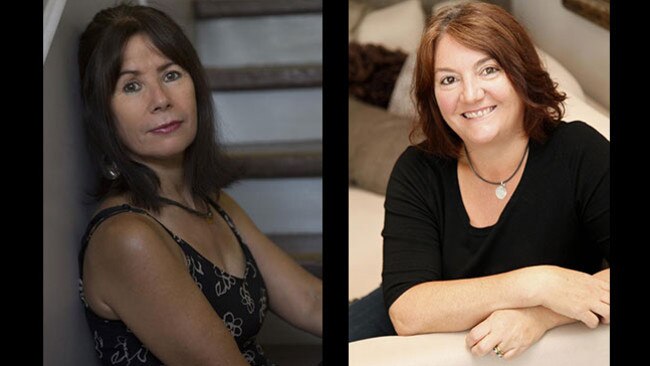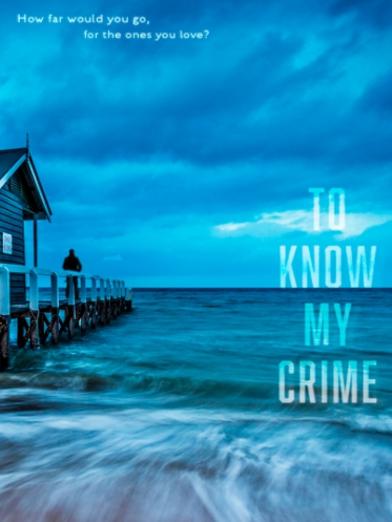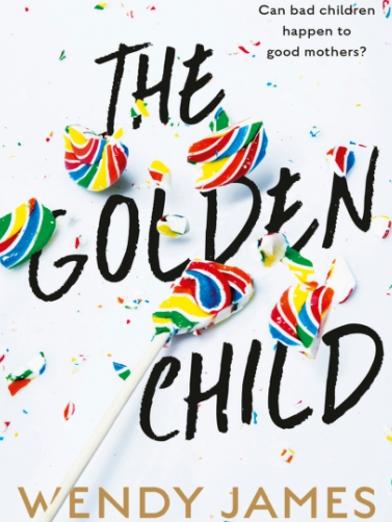Fiona Capp and Wendy James explore tensions of class and family
These two authors don’t pretend Australia is a classless society.

In Fiona Capp’s utterly compelling fifth novel, To Know My Crime, the moral questions are handled with complexity and care. Capp’s writing burns with intelligent restraint and even though this literary thriller is just the right length, I wanted it to be longer. At every engrossing turn, it is impossible not to consider: “What would I do?”
Lovable drifter and younger brother Ned finds himself in the position of having to look after his sister Angela, a shrink. He stuffs up, and in order to get himself out of the mess, he turns to blackmail.
Imagination up full throttle, Capp brilliantly explores the unexpected ways in which the past can catch up with people. Right up to the end, it is unclear not only whether Ned will get away with it but precisely what getting away with it might look like.
Capp is excellent at the myriad shades of grey that her characters are forced to inhabit. The blame never sits directly with one person and nothing is clear-cut. Despite their deeply troubling past, Angela has compassion for her ex-husband Michael, managing to feel sorry for him as he falls towards homelessness and illness. Ned and girlfriend Mai are good people forced to do a bad thing. Morrow, a typical politician, shows signs of a kinder character underneath.
Capp has a dexterous handle on point of view in every instance so that we are not certain what Morrow does and doesn’t know, and whether he can be trusted.
Each character could be a lead in another story. Even rich kid Fraser (real name Tarquin), who we never properly meet, is a terrific and horrible character worthy of more time. Morrow isn’t just a bloviating buffoon; what he has to say is interesting, and Ned and Angela find themselves agreeing and empathising. But it’s Angela, so vulnerable and so strong, who grounds this story. It is through Angela that we see that in trying to protect those who are young, disabled or fragile, sometimes we cause harm.

It is no accident that hard-boiled Raymond Chandler is referenced. Capp is terrific at slowly building the suspense. In the wake of the 2008 global financial crisis, she shows how someone can end up so far from where they started. If you are poor and suddenly unable to pay bills, it is possible to break the law, without precedent.
The story is grounded in a reality we all know, the pace is steady, and the situation is never straightforward. Everything about the sentences in this book shows care. They are without bluster; they do not give too much or too little.
To Know My Crime is terrific, too, at locating the subtle and obvious dividers of class. Capp shows the entitlement and power that come from being rich — the difference between earning something and being born with it, the great injustice that sees “houses of six or more bedrooms that lie empty for most of the year while thousands sleep on the street”.
Wendy James is also not pretending Australia is a classless society, and in The Golden Child she shows how hampered a marriage can be when the parties come from different classes.
‘‘Resilience’’ is the buzzword in Australian schools. We are told that children are less resilient, bullying is rife and social media is a big problem. Beth, the mother in this novel, would be the first to attend school information evenings. She has tried to do everything right and be a good mother.
Beth and Dan are Australian expats living in New Jersey with their daughters Lucy and Charlie. They are about to return to Australia — and not even to cosmopolitan Sydney but to quiet Newcastle (where James lives). The girls are less than thrilled.
Serious bullying starts happening at the girls’ school in New Jersey just before they head back to Australia, and the finger is pointed at Charlie. Then, back in Australia, things quickly start to go awry.
Charlie is presented as the golden child who is good at everything, academic, popular and kind. But at crucial moments she shows no real empathy or compassion. This worries her father.
Her older sister Lucy, unlike Charlie, is not popular. This is a world where sibling rivalry is more a deadly undercurrent than a constant nuisance. Like Capp, James examines the murky ground where truth becomes lies.

The daughters are busy with after-school activities and they are glued to their devices. These are children who rarely get told ‘‘no’’. Increasingly, Beth feels as if she doesn’t know what’s going on with them and finds it hard to accept that they have a world from which she is excluded.
James writes suburban suspense with a domestic disposition, and this book fits into an airport/crime/literary fiction crossover market. As a crime novel, the twist at the end is not altogether convincing but as domestic fiction, James is clearly comfortable painting the way we live today.
James takes a smarting look at private school expectations (and their antiquated uniforms) and The Golden Child is good on the dilemmas for working parents trying to manage careers while negotiating their children’s multiple extracurricular activities, as well as the enormous change technology is having on the parenting of teenagers.
The way we are told of Beth’s feelings and thoughts can sometimes be heavy-handed. “For the first time since their births, Beth feels excluded from her daughters’ lives,” it reads, not quite trusting that the narrative has made that clear already.
There can, at times, be an unnecessary reliance on cliches: the husband who doesn’t want his wife to return to work, the disapproving mother-in-law, the husband who defers to his mother’s opinion over his wife’s.
Nevertheless, James is good at the nitty gritty of contemporary life, and on highlighting the increasing pressure and expectations society puts on mothers. These mothers are held responsible not just for their children’s behaviour but for their happiness as well as their future success. Surely that’s more than was detailed in the job description.
Louise Swinn is a writer and publisher.
To Know My Crime
By Fiona Capp
HarperCollins, 337pp, $29.99
The Golden Child
By Wendy James
HarperCollins, 340pp, $32.99



To join the conversation, please log in. Don't have an account? Register
Join the conversation, you are commenting as Logout